Mattress factories often face one major bottleneck—manual or outdated sewing equipment slowing down output and increasing defects.
Mattress sewing machines improve precision, reduce labor, and ensure durability. They are key to making high-quality mattresses efficiently and consistently.
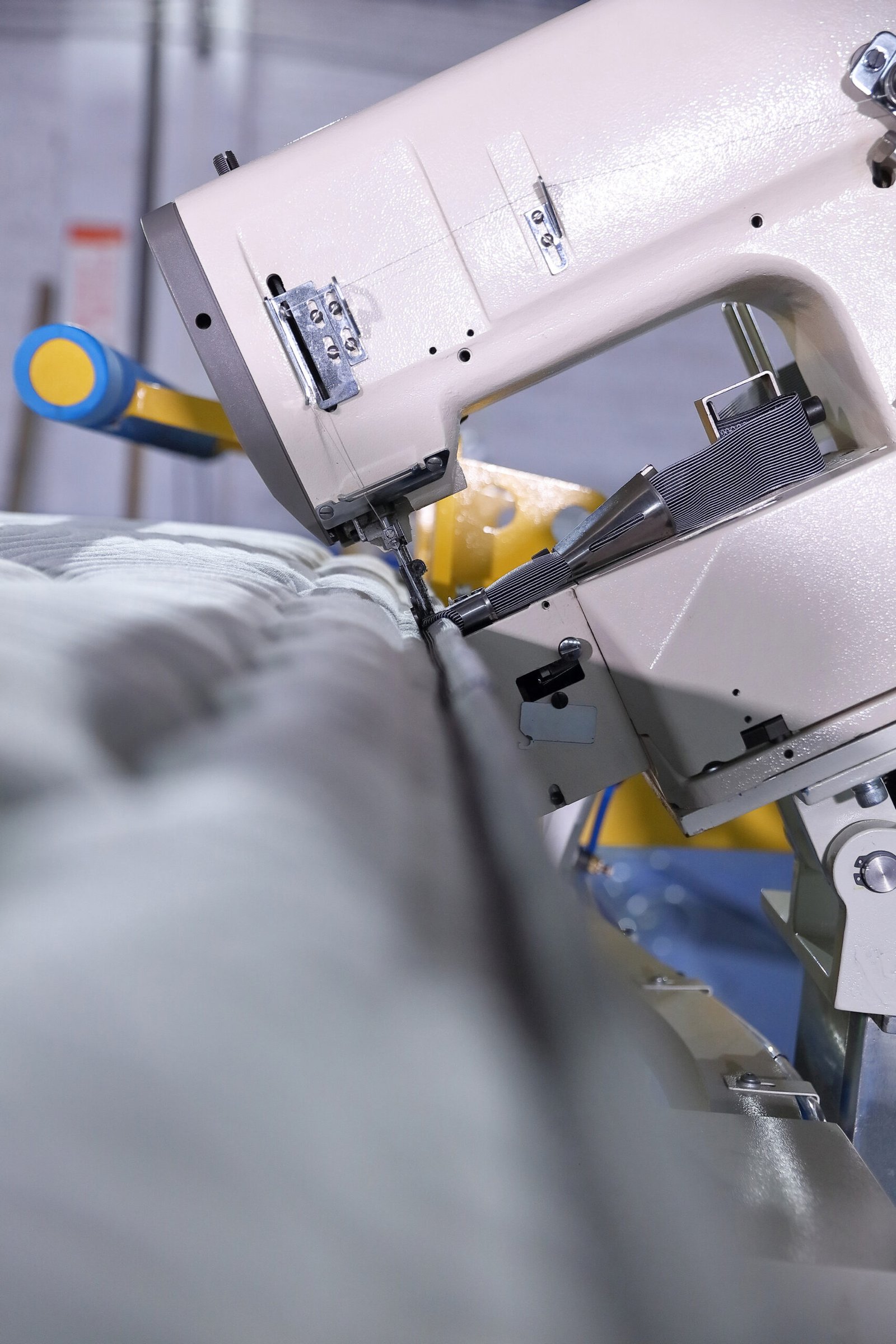
This article explains why mattress sewing machines are vital to modern mattress manufacturing. I’ll walk you through the types of machines, key features, technologies, benefits, and practical tips for choosing the right model.
What Types of Mattress Sewing Machines Are Available?
Manufacturers need different machines for different tasks—but many don’t know which type does what.
There are three main types of mattress sewing machines: tape edge machines, border machines, and panel quilting machines. Each serves a unique function.
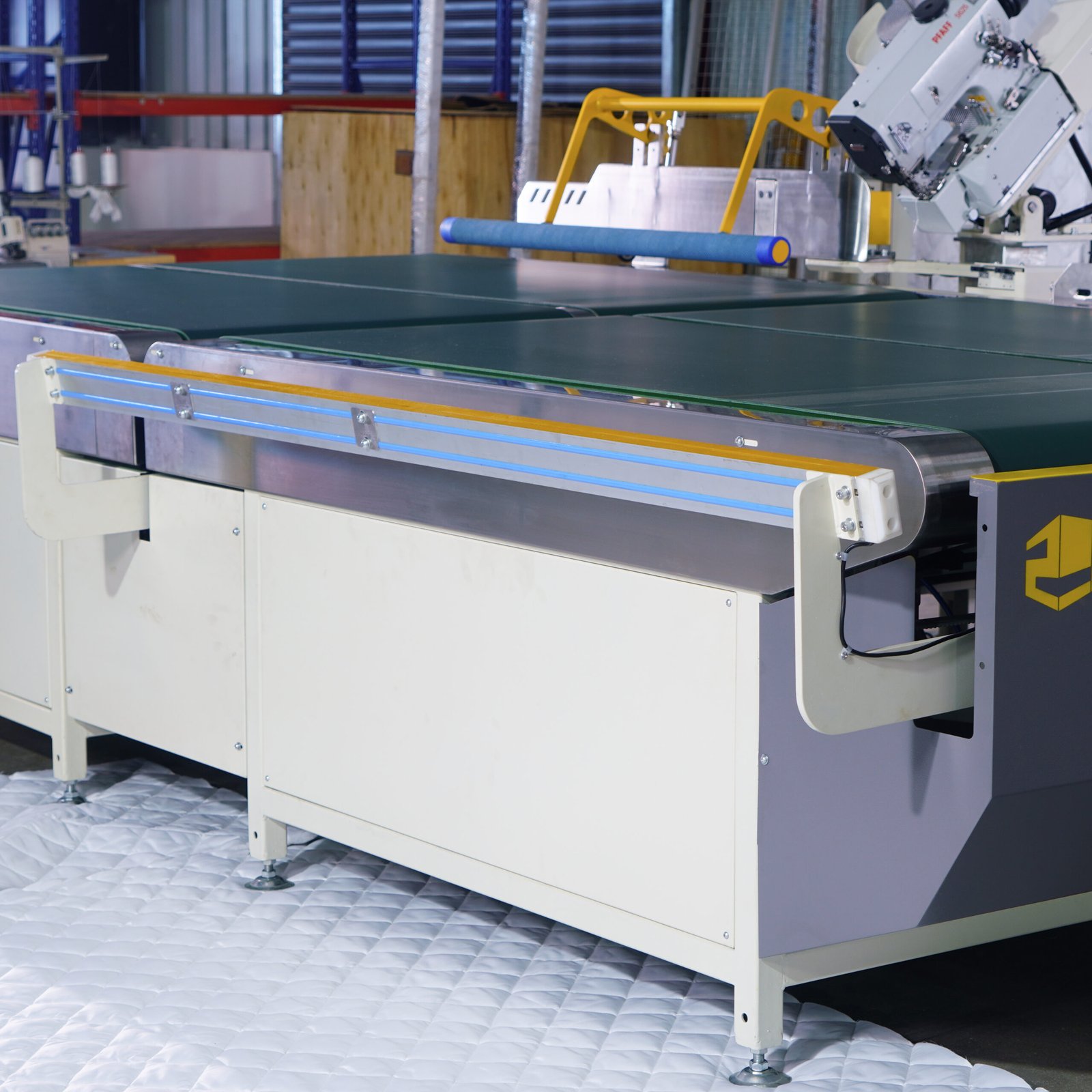
Tape Edge Machines
These are used to finish the mattress perimeter. They attach tape to the mattress edge, sealing it tightly.
Use case: Prevents fraying and ensures structural integrity.
Border Machines
They handle the decorative side fabric (borders). They often feature programmable stitching heads for pattern customization.
Use case: Adds visual appeal and branding flexibility.
Panel Quilters
These machines sew top and bottom panels with quilting designs. They impact comfort and style.
Use case: Defines the mattress’s surface softness and breathability.
| Machine Type | Function | Where It’s Used |
|---|---|---|
| Tape Edge Machine | Attaches edge tape, closes mattress | Perimeter and sides |
| Border Machine | Decorative stitching on mattress side | Side panels |
| Panel Quilter | Quilts top and bottom panels | Mattress surface, comfort layers |
Each machine has a role in shaping not just how a mattress looks, but how long it lasts and how comfortable it feels.
What Key Features Make a Good Mattress Sewing Machine?
Without the right features, even an expensive machine can become a factory bottleneck.
The best machines offer heavy-duty builds, automatic thread cutting, high-speed motors, and programmable stitch patterns.
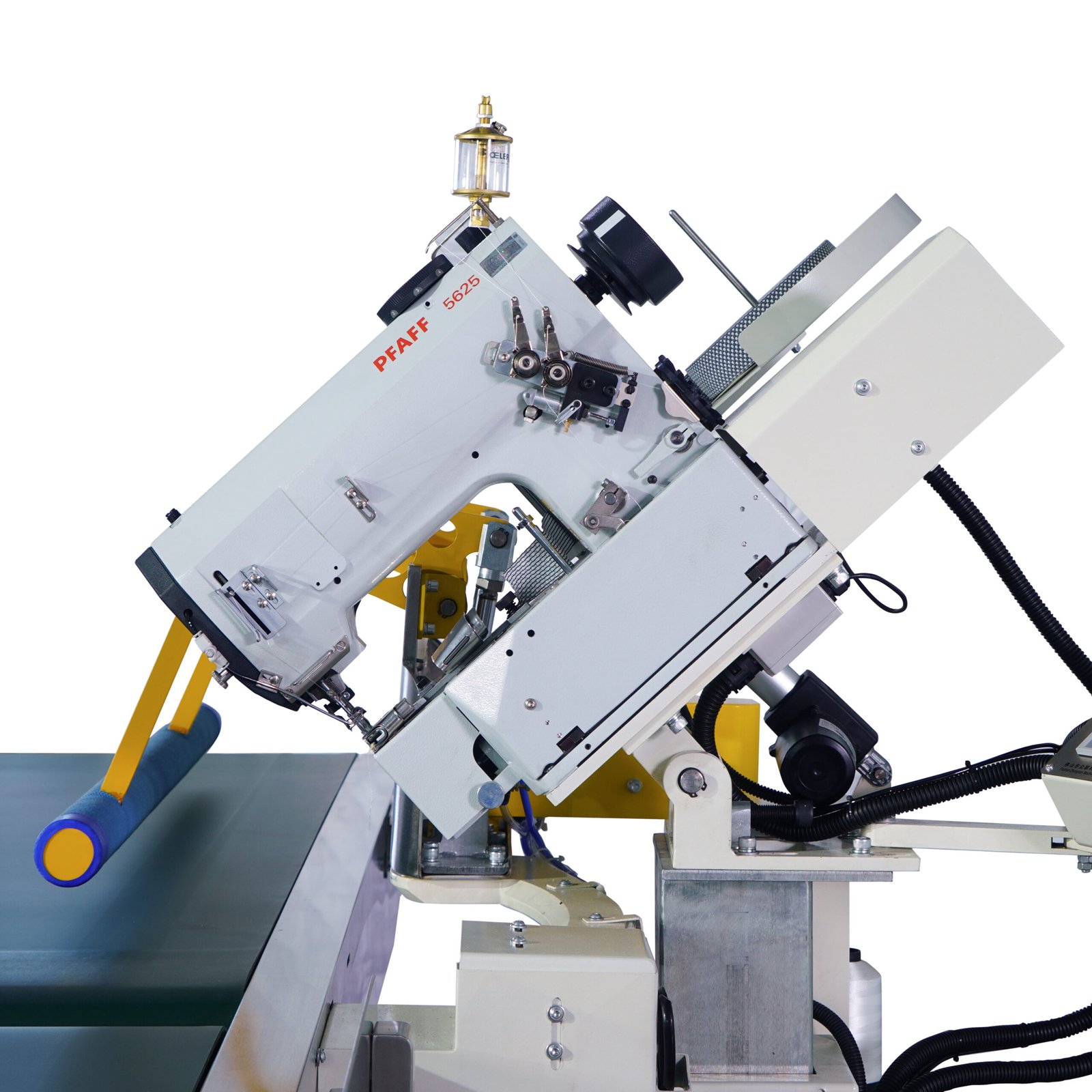
Heavy-Duty Build
Mattress fabrics are thick. A machine must have reinforced steel frames, industrial-grade motors, and stable platforms to handle long hours.
Automatic Thread Cutting
This feature eliminates the manual snipping step. It saves time and avoids errors at every seam change.
Programmable Stitching Patterns
With digital settings, machines can reproduce complex designs with the click of a button.
High-Speed Operation
Top-tier machines sew up to 220 stitches per minute, allowing a factory to output thousands of mattresses per shift.
| Feature | Benefit |
|---|---|
| Auto Thread Cutting | Reduces manual labor and time |
| Speed (200+ stitches/min) | Increases productivity |
| Programmable Patterns | Customization with consistency |
| Durable Frame | Supports high-load, long-term operation |
These features combine to boost efficiency, reduce errors, and allow versatile production across mattress styles.
How Are Advanced Technologies Used in These Machines?
Old sewing machines only stitch. Today’s machines think, detect, and adapt.
Modern mattress sewing machines come with PLC systems, touchscreens, servo motors, and error detection systems for seamless operation.
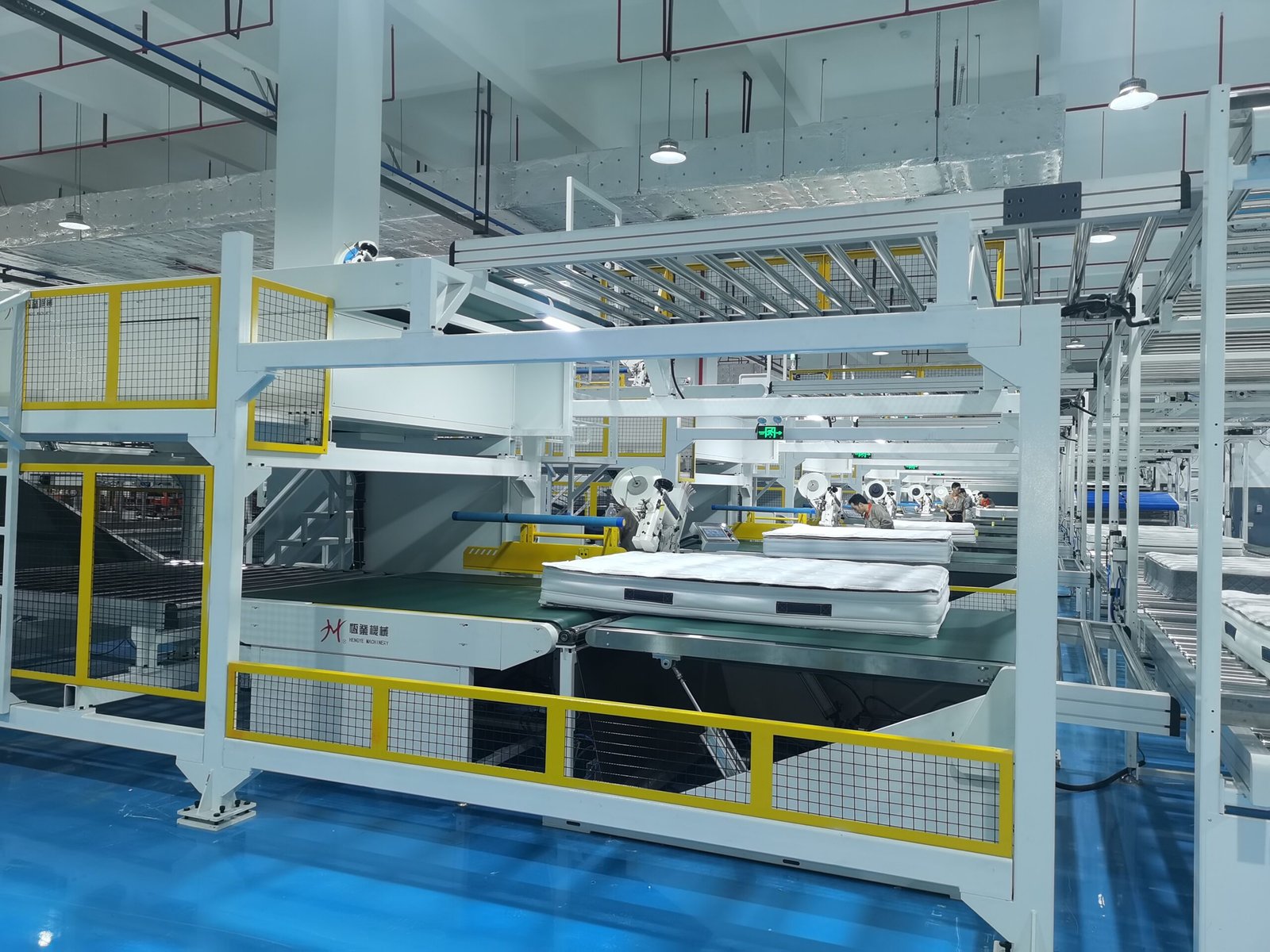
Computerized Control (PLC)
This makes machines programmable. Operators input the size, thickness, and pattern once. The system manages the rest.
Digital Touch Screens
Interfaces are intuitive, multilingual, and user-friendly. Workers can select patterns, set stitch length, or run diagnostics easily.
Smart Sensors & Detection
These detect material jams, skipped stitches, or misalignment. The machine pauses and alerts the operator.
Servo Motor Systems
Unlike regular motors, servo systems offer quiet, smooth, and responsive operation with precise needle control.
Example Tech Stack:
| Technology | Function |
|---|---|
| PLC System | Core command center |
| Touchscreen Interface | User input and live feedback |
| Servo Motors | Needle control and stitch accuracy |
| Smart Sensors | Fault detection and safety alerts |
These innovations reduce defects, increase uptime, and allow even new operators to use the machine efficiently.
What Are the Key Benefits of Using Mattress Sewing Machines?
Manually sewn mattresses are inconsistent, slow to produce, and labor-intensive.
Mattress sewing machines boost speed, reduce cost, improve stitch quality, and support custom production at scale.
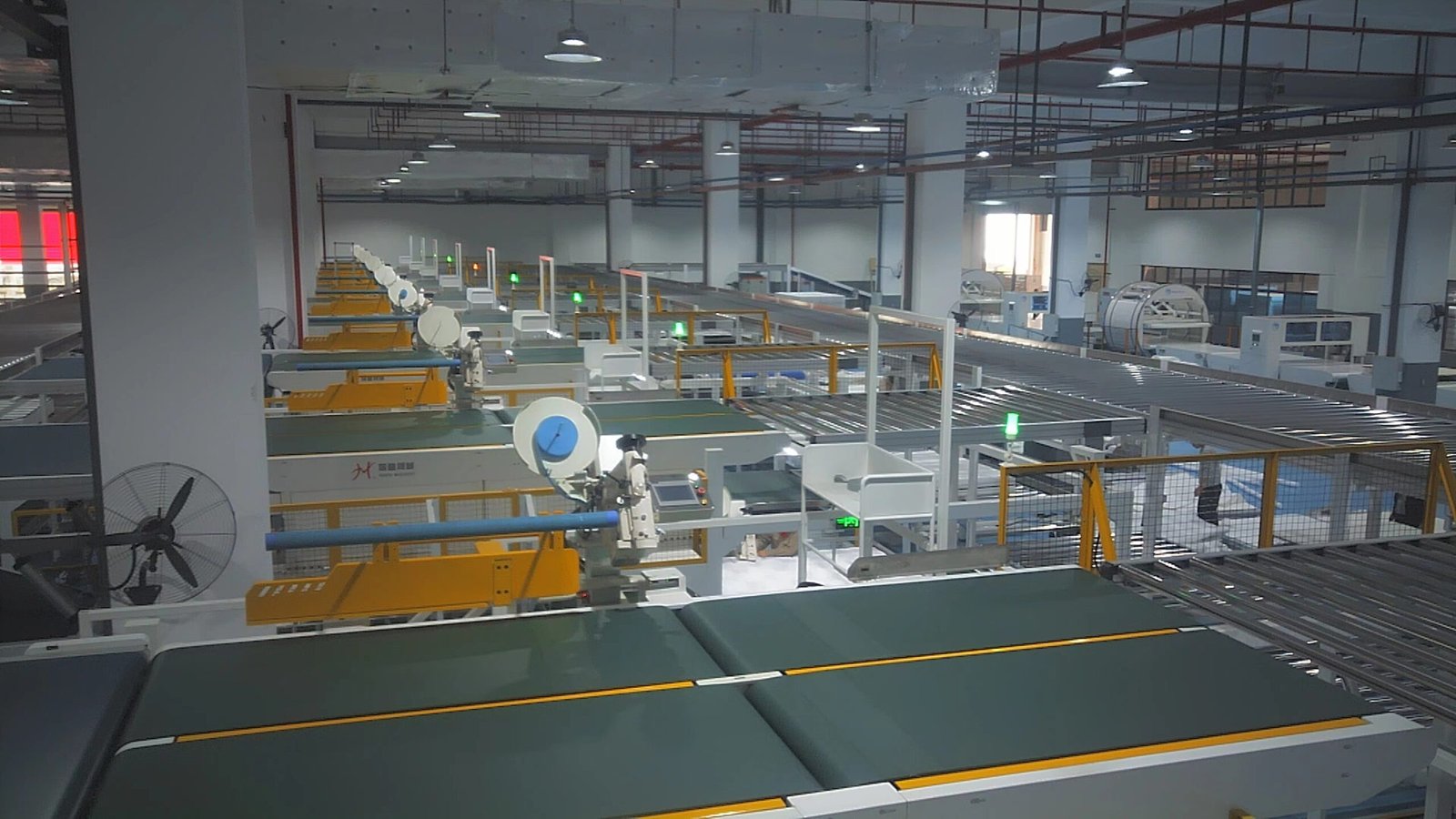
Faster Production
With speeds exceeding 200 stitches per minute, automated systems can output more units without sacrificing quality.
Fewer Defects
Consistent stitching tension, automatic cutoff, and smart error detection mean fewer quality complaints.
Lower Labor Costs
One trained operator can oversee two or more machines. Automation also reduces the skill threshold for new workers.
Enhanced Customization
Stored stitch programs allow for quick changes between SKUs, which is crucial for factories serving multiple clients.
| Benefit | Value Delivered |
|---|---|
| Time Savings | More mattresses made per day |
| Quality Assurance | Fewer returns, better customer reviews |
| Cost Efficiency | Less rework, reduced manpower |
| Scalability | Easily handle bulk or custom orders |
Once installed, a good mattress sewing machine pays for itself in under 12 months at mid-scale production levels.
What Should I Consider When Choosing One?
Not all machines fit all factory setups. Picking wrong wastes time and money.
You should evaluate machine durability, maintenance needs, material compatibility, and available support.
Durability
Look for welded steel frames, brand-name motors, and reputable bearings. Machines should last 8–15 years with upkeep.
Maintenance & Spare Parts
Check if the supplier provides spare parts locally. Are wear parts modular and easy to change?
Compatibility
Ensure the machine can work with:
- Foam or innerspring mattresses
- Varying thicknesses (up to 450mm)
- Different fabric tensions
After-Sales Support
Choose a vendor with remote support, training, and quick spare part shipping.
| Factor | What to Check |
|---|---|
| Durability | Frame material, service life |
| Maintenance | Tool-free part access, local parts stock |
| Compatibility | Thickness/fabric support |
| Support | Response time, online/onsite help |
Investing wisely avoids long downtimes and lets your team focus on output.
Conclusion
Mattress sewing machines improve speed, reduce labor, and guarantee consistent quality—making them essential for growing mattress factories.
Get in touch with us for tailored solutions! We look forward to collaborating with you and shaping a brighter future together!
📞 | WhatsApp:+86 15220512074
📧E-mail:zhongliantec@gmail.com
Web | Link:mattressmachineryzl.com
